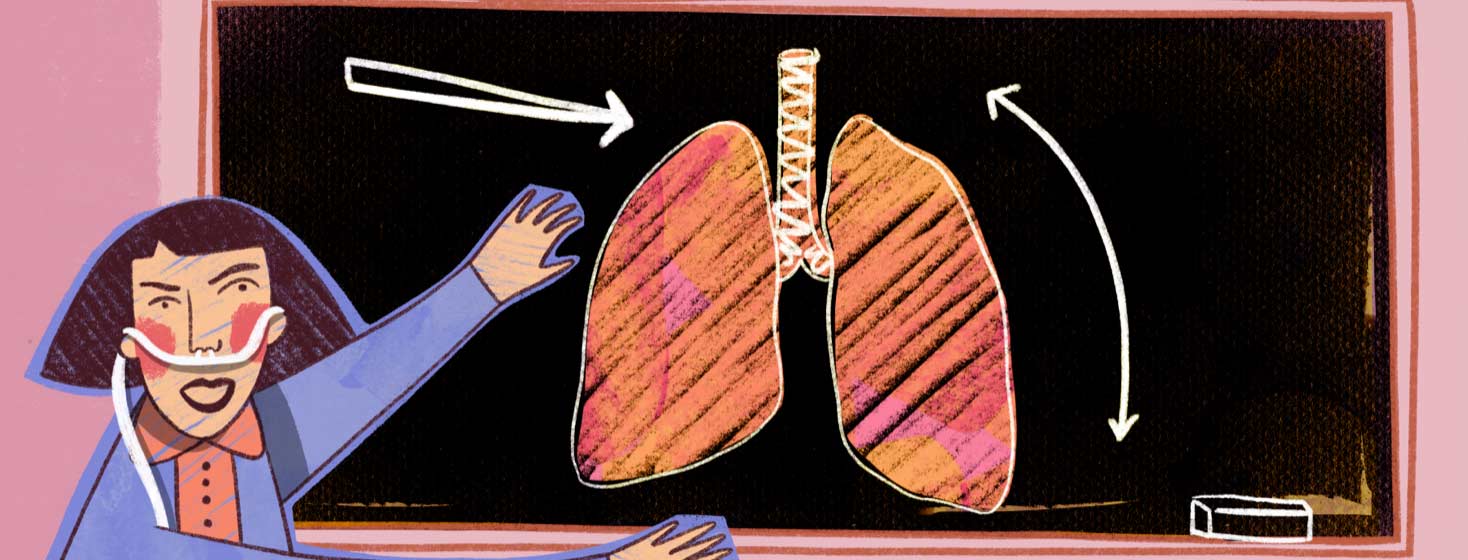8 Tips to Help People Understand Your COPD
Many people in this community have shared how challenging it is to gain sympathy and understanding from those in their lives who don't have COPD. Some people simply don’t grasp what you’re going through and may not offer help when you need it. Here are 8 tips that could help others better understand your experience.
Tips for helping others understand your COPD journey
Bring someone with you to your appointments
Invite a trusted person to join you at your medical appointments. This way, they can see firsthand what you’re experiencing and hear directly from your doctor about your condition.
It also allows your doctor to explain what you can and cannot do, and what adjustments you’ll need to make. Once this person has a clearer understanding, they can help communicate your situation to others.
Share educational materials
Instead of trying to explain everything yourself, consider sending professional resources about your condition. These materials can provide valuable information that might be more effective than personal explanations.
You can also share articles like this one, offering tips on how to help others understand your situation. Many people have found this approach to be quite successful.
Be honest and open about your feelings
Sometimes, people don’t understand what you’re going through because they don’t realize how much you’re struggling. Be honest and open about your feelings. Let them know when you're having a tough time, and share your concerns, fears, and frustrations. This transparency can foster empathy and a deeper understanding of your condition.
Set your boundaries
Make sure others understand your limits. Clearly communicate what you can and cannot do, and don’t be afraid to set boundaries. If certain activities or environments are too challenging or stressful for you, let them know.
For instance, getting colds can often trigger flare-ups in those living with COPD. So, you may suggest that others who are sick not visit you. Setting these boundaries helps prevent misunderstandings and ensures that others know how to best support you.
Involve them in your daily routine
Sometimes, the best way for others to understand your condition is to see it in action. Invite them to spend a day with you so they can experience your daily routine. They’ll witness the challenges you face, like taking showers, cooking, or carrying oxygen tanks when you go out.
They’ll also see how routine tasks, like vacuuming or other household chores, can be difficult. This firsthand experience can help them better understand the adjustments you need to make, fostering greater empathy and support.
Join a support group together
If there’s a support group for people with COPD or chronic illnesses in your area, consider attending a meeting with a loved one or friend. Seeing others with similar experiences can help them understand the extent of your struggles and the reality of living with COPD.
Alternatively, invite them to join online communities like ours, where they can witness firsthand the challenges faced by those with the disease. Additionally, these communities often provide valuable information about COPD that can be helpful for both you and your loved ones.
Educate them on the importance of emotional support
Even if others don’t fully understand what you’re going through, they can still learn to empathize and provide valuable emotional support. Explain that while they may not be able to physically assist with your condition, their emotional support is very helpful. Let them know that simply listening, being present, and offering encouragement can significantly impact your well-being.
Be patient and give them time
When you’re diagnosed with a new disease, it can take time to accept and understand what that means. Similarly, it can take others time to fully grasp what you’re going through. They might initially deny or struggle to comprehend your experience.
Understanding a chronic condition like COPD is a process, so be patient with your loved ones as they learn about your situation. Allow them time to adjust and absorb the information you share, and remember that their understanding will likely develop gradually.
Featured Forum
View all responsesBridging the gap in understanding
I understand firsthand how challenging it can be to help others truly grasp your experience. As your symptoms become more frequent and you need to adjust daily tasks like cooking or cleaning or modify plans and activities, this challenge can grow.
With some patience, clear communication, and a proactive approach to seeking support, you can positively influence how others understand and empathize with your journey.

Join the conversation